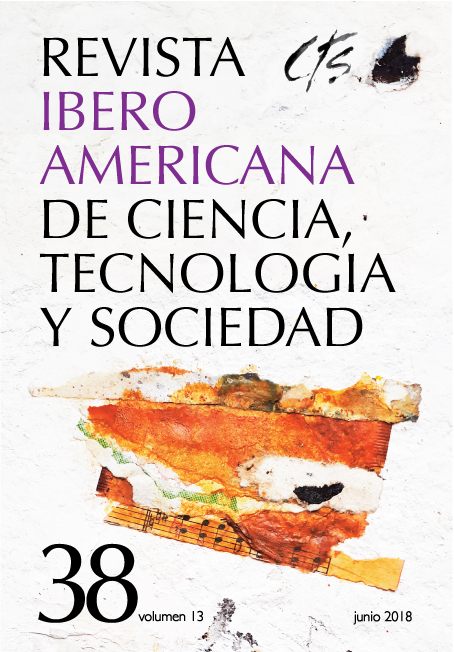On the Evolution of León Olivé’s Epistemological Thought
Keywords:
social epistemology, naturalized epistemology, epistemic pluralism, local rationality, metaphysical realism, pragmatist turn, ontological pluralismAbstract
Here I present a schematic reconstruction of the development of León Olivé’s epistemological thought, in which three stages are identified. The first one is defined by Olivé’s attempt to formulate a social theory of knowledge that, at the same time, would be strongly linked to epistemological realism. The second stage is marked by the change experienced by Olivé’s ideas on rationality, a change that precipitated the abandonment of his commitment to metaphysical realism. Finally, the third stage is defined by the pragmatist (not merely pragmatic) turn that Olivé stamped on his epistemology, so cognitive practices acquired a central role in his general theory of knowledge, which, in turn, reinforced the social, plural and naturalized character of his epistemology. In this last stage, the pragmatist turn was the key that led Olivé to the goals he glimpsed since the beginning of his project: to frame an epistemology consistent with the phenomenon of cultural diversity, appropriately suited to analyze the ethical and political problems posed by scientific and technological development in a knowledge-based society.Downloads
References
DI GREGORI, M. C. (2006): “Sobre objetividad y verdad”, Conocimiento, realidad y relativismo, México DF, Universidad Nacional Autónoma de México, pp. 49-64.
DI GREGORI, M. C. y DI BERARDINO, M. A. (2006): Conocimiento, realidad y relativismo, México DF, Universidad Nacional Autónoma de México.
DI GREGORI, M. C. y DURÁN, C. (2006): “Racionalidad y estrategias antirrelativistas: dos enfoques”, Conocimiento, realidad y relativismo, México DF, Universidad Nacional Autónoma de México, pp. 89-101.
OLIVÉ, L. (1985): Estado, Legitimación y Crisis, México DF, Siglo XXI.
OLIVÉ, L. (1988): Conocimiento, Sociedad y Realidad. Problemas del análisis social del conocimiento y del realismo científico, México DF, Fondo de Cultura Económica.
OLIVÉ, L. (1993): Ética y Diversidad Cultural, México DF, Fondo de Cultura Económica.
OLIVÉ, L. (1996): Razón y Sociedad, México DF, Fontamara.
OLIVÉ, L. (1999): Multiculturalismo y Pluralismo, México DF, Paidós-UNAM.
OLIVÉ, L. (2000): El bien, el mal y la razón. Facetas de la Ciencia y la Tecnología, México DF, Paidós-UNAM.
OLIVÉ, L. (2003): “Prólogo”, en P. Servato: Los Métodos de Investigación en Ciencias Sociales y la Producción Social del Conocimiento, Río Gallegos, Universidad Nacional de la Patagonia Austral.
OLIVÉ, L. (2004a): “De la estructura normativa de la ciencia a las prácticas científicas. Normas y valores en la ciencia”, en Jesús Valero (ed.): Sociología de la Ciencia, Madrid, EDAF, pp. 57-80.
OLIVÉ, L. (2004b): “Normas y valores en la ciencia bajo un enfoque naturalizado”, Revista de Filosofía, vol. 29, n° 2.
OLIVÉ, L. (2004c): Interculturalismo y justicia social, México DF, Universidad Nacional Autónoma de México.
OLIVÉ, L. (2004d): “Epistemología en ética y en éticas aplicadas”, preparado para el Simposio “El estatuto epistemológico de la bioética”, Montevideo, UNESCO, Montevideo, noviembre.
OLIVÉ, L. (2007): La ciencia y la tecnología en la sociedad del conocimiento. Ética, política y epistemología, México DF, Fondo de Cultura Económica.
PÉREZ RANSANZ, A. R. (1988): “Presentación de Conocimiento, sociedad y realidad, de León Olivé”, Diánoia, vol. 34, pp. 231-237.
PÉREZ RANSANZ, A. R. (1993): “Verdad y realidad. Comentarios a la propuesta de León Olivé”, Revista Latinoamericana de Filosofía, vol. 19, pp. 327-337.
VILLORO, L. (1988): “Comentarios a Conocimiento, sociedad y realidad, de León Olivé”, Diánoia, n° 34, pp. 238-241.
Downloads
Published
How to Cite
Issue
Section
License
All CTS's issues and academic articles are under a CC-BY license.
Since 2007, CTS has provided open and free access to all its contents, including the complete archive of its quarterly edition and the different products presented in its electronic platform. This decision is based on the belief that offering free access to published materials helps to build a greater and better exchange of knowledge.
In turn, for the quarterly edition, CTS allows institutional and thematic repositories, as well as personal web pages, to self-archive articles in their post-print or editorial version, immediately after the publication of the final version of each issue and under the condition that a link to the original source will be incorporated into the self-archive.











